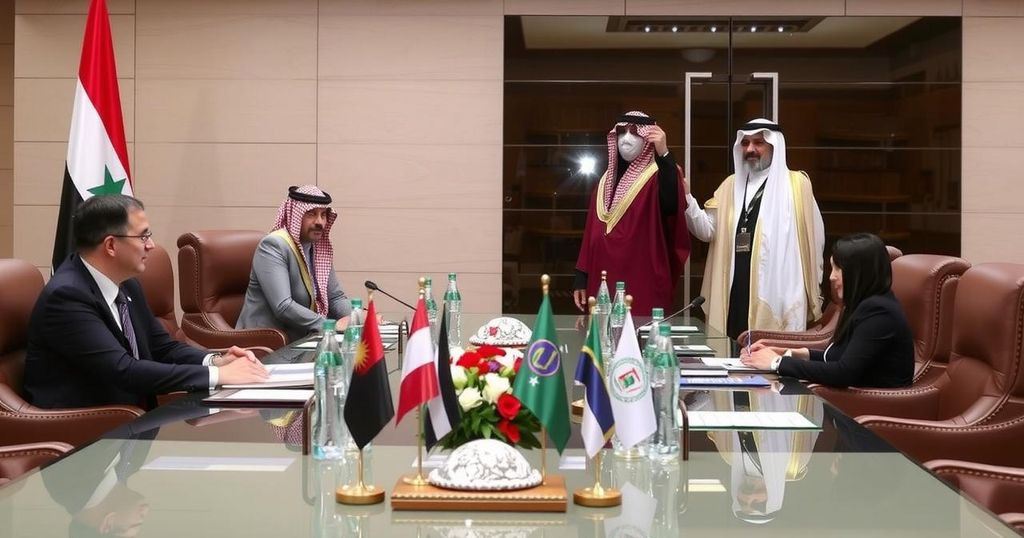Syria’s new Foreign Minister Asaad al-Shibani visited Qatar to pursue diplomatic relations, following a series of talks with European officials. He aimed to strengthen ties and address sanctions impacting Syria’s economy amidst humanitarian crises. Al-Shibani’s initiatives highlight the complex political landscape post-Assad’s regime and the ongoing efforts to foster strategic partnerships in the region.
Asaad al-Shibani, Syria’s new Foreign Minister, visited Doha for discussions with Qatar’s Prime Minister and Foreign Minister, Mohammed bin Abdulrahman Al Thani, in an effort to revive diplomatic relations amidst the changing political landscape in the region. His trip follows a series of meetings with foreign ministers from Germany and France in Damascus, signaling Syria’s intent to develop strategic partnerships with neighboring nations, including upcoming visits to Jordan and the United Arab Emirates.
The visit highlights Syria’s aspiration to restore various international ties following the ousting of President Bashar al-Assad by the Hayat Tahrir al-Sham (HTS) insurgents on December 8. This event marked a significant shift in Syria’s political dynamics, with HTS now pursuing the normalization of relations with Arab countries to alleviate the severe economic sanctions that have plagued the Syrian populace since the initial unrest in 2011.
Despite the challenges faced, which have left 90% of Syrians in poverty and struggling for basic necessities, the Syrian government is keen on engaging in dialogues to devise a political roadmap leading to a new constitution and subsequent elections. Al-Shibani emphasized the importance of addressing economic sanctions on the Syrian people and conveyed the request for the United States to reconsider these measures.
Additionally, it remains uncertain when or if the international community, particularly the United States and European nations, will be willing to lift the sanctions currently imposed on Syria. Concerns about the humanitarian impact of HTS rule and the treatment of minorities contribute to the hesitancy observed among potential Western diplomatic engagements with the new Syrian government.
The backdrop of Syria’s current diplomatic endeavors is rooted in a devastating civil war that began in 2011, which resulted in an estimated 500,000 fatalities. The conflict involved Assad’s government, supported by allies such as Russia and Iran, facing opposition from various groups, including the HTS. HTS’s rise and the overthrow of Assad’s longstanding regime propelled the need for a reestablishment of ties to improve Syria’s ailing economic and social conditions. The international response to al-Assad’s regime has been predominantly negative, rooted in his government’s repressive tactics against citizens, leading to widespread sanctions. In this context, al-Shibani’s initiatives reflect a shift aimed at securing Syria’s place in the regional and global political arena while attempting to address severe humanitarian issues within the country.
In conclusion, Syria’s new Foreign Minister Asaad al-Shibani is making strategic efforts to restore diplomatic relations with Qatar and other regional partners following the downfall of President Bashar al-Assad. These efforts are crucial for alleviating the economic hardships faced by the Syrian population, exacerbated by sanctions. However, the potential for lifting these sanctions is contingent upon international perceptions of HTS and concerns regarding governance, making the future of these diplomatic efforts uncertain.
Original Source: www.euronews.com






